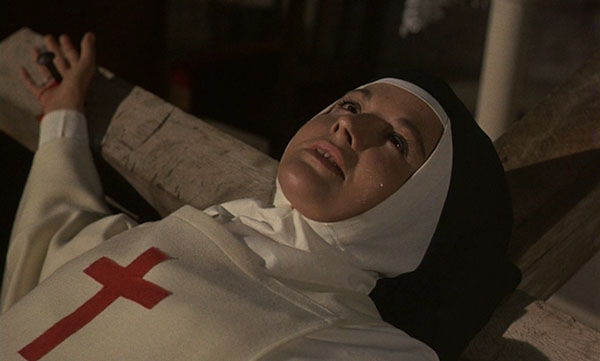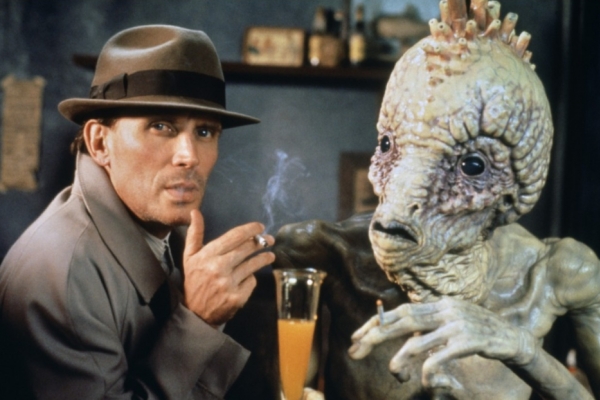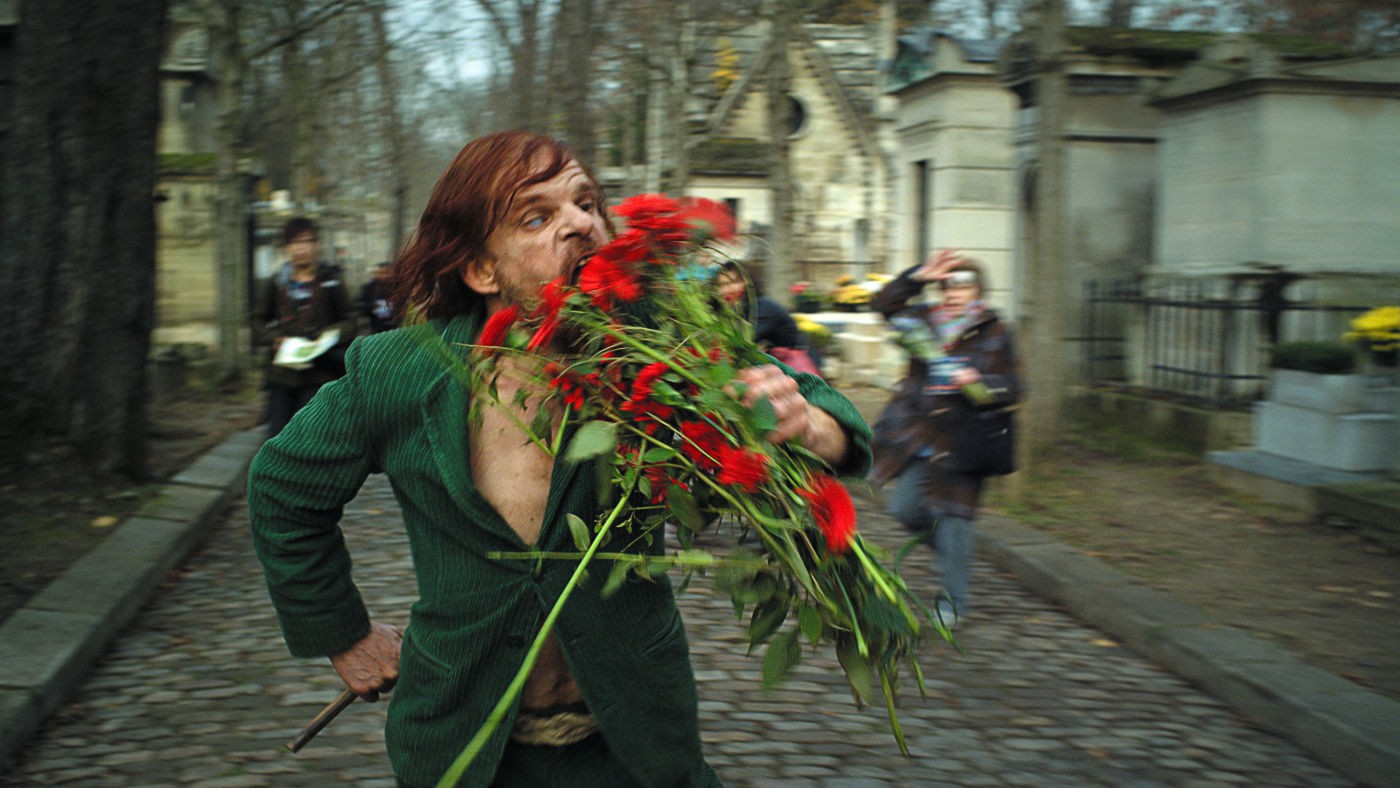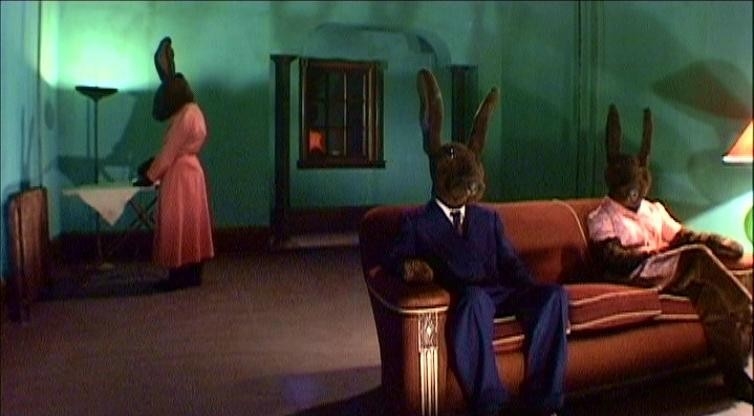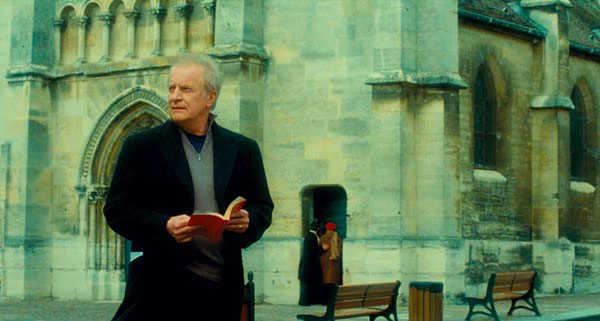8. Milky Way (Luis Bunuel, 1969)
Another master of surrealism, Luis Bunuel has created a number of movies concerned with absurd themes. In this particular case he drives his hate toward religion, and he was able to create almost a philosophical enquiry against religious beliefs. This is the story of two pilgrims trying to reach Santiago de Compostella, but during their travel they meet strange people telling strange tales.
Bunuel tried to show Catholic incoherence by showing heresies and contradictions within it. The spectator will hear a lot of undercurrents: Gnosticism, Priscillianism, Nestorianism, among others. A sort of absurd language always pervades the film, where pilgrims represent the victims of an absurd historical revival.
By following the pilgrims’ trail we follow the history of Catholic doctrine and its denial; a denial confirmed by an ironic Jesus that is always telling controvert passages of the Gospels. Watching through Bunuel eyes we can ask: What’s more absurd than following the church and religious belief? It would mean absolute blindness.
7. Bad Blood (Leos Carax, 1986)
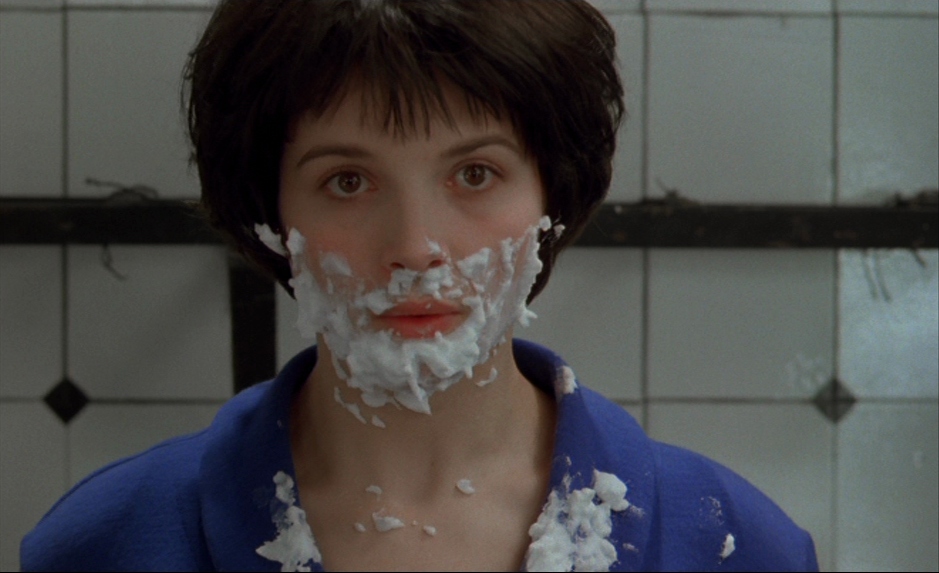
Imagine a virus that kills everyone who has sex without love or emotional involvement. The plot of this film is based on four characters searching for an antidote to that strange anomaly. Three people, after the death of one of their band, contact the son of their dead comrade to replace him.
This son, who is the main character, lives an unsatisfied life with a girl and he wants to prove the sense of velocity. The protagonist falls in love with the fiancée of his friend, and their poetical dialogues let the spectator understand that love is not just based out of logic, but the entire world is in the same situation.
Following Camus, this movie synthetizes this thought: “The absurd world, more than anything else, remounts its nobility to that miserable birth. In some situations, answering: ‘nothing’ to a question about the nature of your thoughts, could be, in man, a feint. Loved ones know this well. But if this answer is honest, if represents that particular inner state where the void becomes eloquent, where the chain of everyday gestures is interrupted and the heart searches, in vain, the ring that reconnects it, is then like the first sign of absurd.”
6. L’Age D’Or (Luis Bunuel, 1930)
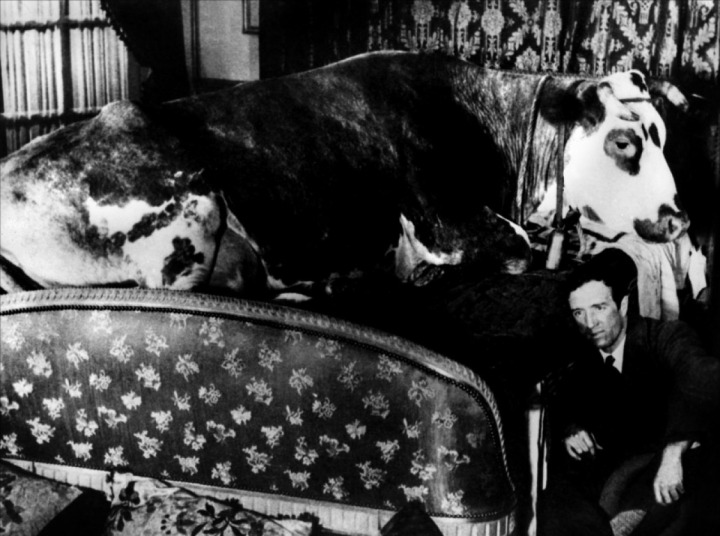
Like Jodorowsky, Bunuel hides behind crazy and illogical sequences with clear attacks to institutions. In particular, he has a famous hate for the bourgeoisie: church, army and state. This film is fulfilled with many strange elements, but the main theme is the love story between two people, always interrupted by various situations. The psychoanalytical element here is strong, as well as the contrast between the impulsive and illogical feelings of love and coercive institutions.
Considering that context we can follow this thought: “The tradition of what we can call the humiliated thought has never stopped to be alive. The critic of rationalism has been done so many times that it seems we should not do more. Nevertheless our epoch sees rebirth those paradoxical systems, which works for stumble the reason, like if this one has always proceed onwards. But this is not an efficiency proof of reason but the ardor of its hopes. On the history plain, the perseverance of this two stances explains the essential passion of man, dilacerated between the recall to unity and the clear vision that he can have of his own closing walls.” Love is the Bunuel’s unity, and society is the tightening walls.
5. Naked Lunch (David Cronenberg, 1991)
Cronenberg is another master of absurd movies, particularly relating to body horror and Cartesian world tricks. This time Cronenberg falls in the chaotic world of drugs, inspired by the famous novel Naked Lunch by William Burroughs. In this movie, drugs show their most absurd consequences in the human mind, and it’s impossible to say where fiction ends and reality begins.
Cerebral damages are problems that could lead man to other realities or better absurdities and men choose to use drugs and this freedom lead to a sort of Sisyphus work. “Consciousness and revolt: these wastages are the contrary of renounce. Everything there is of irreducible and passionate in human’s heart it animates them, on the contrary, of its own life. It deals to die not reconciled and not in full accordance. Suicide is dis-knowledge. Absurd man cannot do anything else than everything exhaust and to be exhausted. Absurd is an extreme tension, the one that it preserves constantly with a lonely effort, because he knows that in this consciousness and in this revolt, day by day, he testifies his only truth, that is challenge.”
4. Holy Motors (Leos Carax, 2012)
The same discussion of Zelig is valid here, and it is also expanded upon. Holy Motors is not a comedy; it is insanely grotesque and it shows the complete mutation of man in a spiral of different roles. The sense of absurd is a constant present throughout this film, where the protagonist lives his roles, he wears a double mask that hides himself and the spectator is unable to say when this insane game will finish. Is the protagonist’s true role to be a double actor?
In this film, Carax has hit a particular point that left us thinking that the protagonist could feel his world, but not his ego. He seems so sure of this that he sacrifices himself to the altar of absurdity; and Camus’ words seems pronounced (or by Leos Carax): “If I try, in fact, to catch this I that I’m sure, if I try to define it and to abridge it, it’s not more than water that flows through my fingers. I can draw, one by one, every face it’s able to assume, and also the ones that they give it: education, origin, passions or silences, greatness or lowness. But you cannot sum faces. This same heart, that it’s also mine, for me will always remain indefinable. The abyss that there is between certainty that I have on my existence and the content that I try to give to this security, it will never be fulfilled. I will always be stranger to myself.”
3. Inland Empire (David Lynch, 2006)
Lynch loves to explore the inner labyrinth we have inside our brain, and this film is a clear demonstration of that. This may be the most complex and incomprehensible work in the entire Lynchian filmography. It’s quite difficult to say what precisely Lynch’s purpose is here, and we’re sure only of one: to show the complexity of human symbolization. The spectator will have the sensation of being inside a dream (or a nightmare), and it’s incredible how Lynch masters the same language of unconscious.
Man has always fought against his own fears and passions. Every time they take different forms, and every time we need to interpret them to our outer selves; this could be an easy interpretation of Inland Empire. However, thankful to Camus, we can focus on this aspect: “If absurd exist, it is in the universe of man. From the moment when its notion becomes a diving board for eternity, it’s not linked anymore to human lucidity, and the absurd is not anymore the evidence that man prove without consent. The fight is evaded. Man integrates the absurd, and, in this communion, he let disappear its essential character, which is opposition, torment and divorce. This jump is a way to elude.”
2. The Blood of a Poet (Jean Cocteau, 1930)
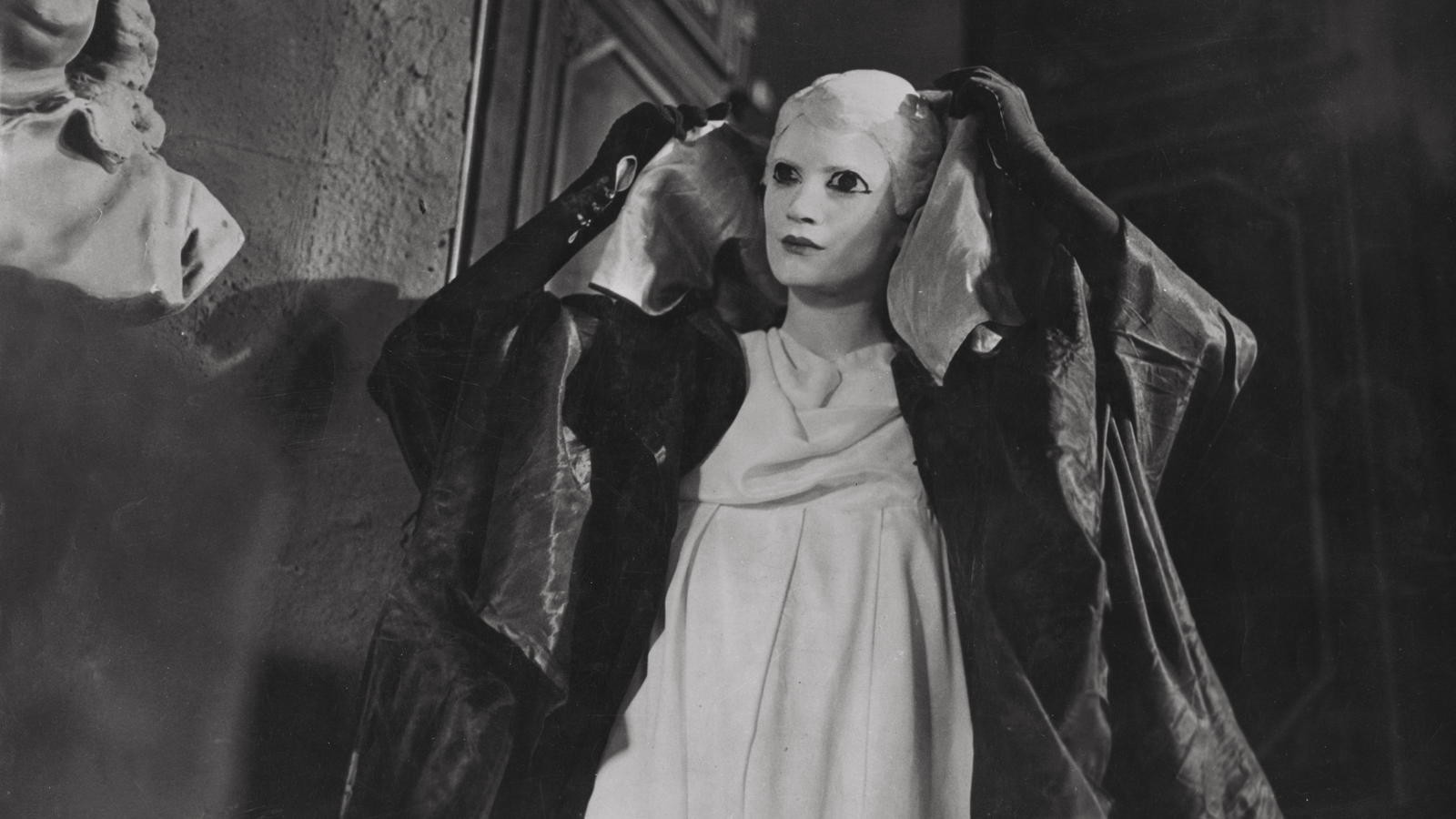
From Camus: “To sink into that depthless certainty, into feel already strangers enough to your own life to enhance and roam it without lovers’ myopia, there’s already the principle of a deliverance. This new independence is a term, like any freedom of action, and it cannot write a check for eternity; but it substitutes illusions of freedom that stops everyone to death. The divine availability of death condemned, towards whom it opens the prison’s door at dawning of a certain day, the incredible disinterest for everything, except for the pure flame of life – easily intuitable –death and absurd are, in this case, principles of the only reasonable freedom: the one that man’s heart could prove and live. Here is the second consequence. So absurd man glimpses an ablaze and frozen universe, transparent and limited, where nothing is possible, but everything are done; and after that there is sinking and nothing. He can even decide to accept life in such a universe and derive his strength, the refusal to hope and the obstinate proof of a life without consolation.”
With these words, Camus represented perfectly the absurd situation of man, and in the last line, he could easily refer to a poet. What’s more absurd than the poet? Certainly Cocteau knew that and thus was able to film this sensation, as he represented the sacrifice of a poet to either himself or to his world.
This is the first episode of a trilogy, and probably it is the best of all these episodes to perfectly explain what it means to be a poet. It means to bleed towards a senseless idol, and it means becoming like Sisyphus.
1. Wild Grass (Alain Resnais, 2009)
One of Alain Resnais’ last masterpieces explores the domain of absurdity, in a great way. This film’s plot is based on the casual love between two unknown middle-aged people. They met very casually and Resnais uses this to let us notice the impact a minimum event can make in our life, and the absurd consequence it can have. This simple plot is difficult to explain, with the lyrical tension that flows in an undercurrent, or the astonishing photography within.
The entire film could resound this quote from Camus: “From the moment when it is recognized, the absurd becomes the most excruciating of all the passions. But to know if it’s possible to live with its own passions, if it is possible to accept their deep law, that it is to burn the heart that, at the same time, they extol: here is the problem.” The protagonist seems to move in a world he can no longer understand, and after awhile it’s no different for his lover.
To face the absurd world means to face our crazy laws of the heart, and be completely burned. That’s the Sisyphus quest we need to break. The characters cannot escape their feelings and the more they try to evade them, the more they feel “crazy”. Certainly cinema is a great vehicle for those messages, and more importantly, it lets us focus on what surrounds us. Every choice by Resnais permits us to focus on a certain aspect of life, and absurd is likely the most basic one.
*All the quotes in Italics are referred to: Albert Camus, Il Mito di Sisifo, Bompiani, Milano, 1947
Author Bio: Luca Badaloni is studying his master’s degree in Philosophy. He believes that cinema is a perfect instrument for philosophical ideas and actually society needs critical thinking in several ways. He loves to write script, direct short movies but mostly, he loves reading.
